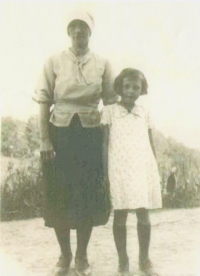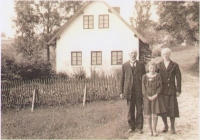She was waving goodbye to invaders in 1968 and after a few years she took a chewing gum to Russia

Download image
Květa Řehořková was born on April 18, 1932 as the only child in the family of the shoemaker František Řehořek and the mother Amália Řehořková in Křížlice near Jestřábí in Krkonoše. In 1938 she started attending a primary school here, then she attended schools in Poniklá and Vítkovice. At the end of the war, she experienced the retreat of the German army in nearby Hrabačov near Jilemnice. In 1947 she started a one-year training course with the Russian language, after a short job in a ski factory she worked in a textile plant in Vítkovice (later a branch of the Seba Tanvald company). In 1947, the family moved to the farm that was left after the displaced Germans, but also because of her father’s poor health, they eventually returned to their original homestead. In 1949, her father František Řehořek died and Květa took his place in the textile industry and joined the Communist Party of Czechoslovakia (KSČ). In 1950, she married Josef Řehořek (it is a coincidence of names), with whom she had two children. During the days of August 1968, she discouraged her colleagues from protesting against the Soviet invaders. She recalls visiting the Soviet Union with a work tour in the 1970s. At that time, she was involved in the Red Cross and in the Security and Cultural Commission of the Communist Party, while maintaining good relations with the local pastor. Květa Řehořková worked as a librarian until 2015.









